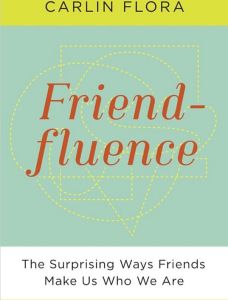Join getAbstract to access the summary!

Join getAbstract to access the summary!
Carlin Flora
Friendfluence
The Surprising Ways Friends Make Us Who We Are
Anchor, 2013
What's inside?
The power and worth of friendships may surprise you.
Recommendation
Friends can improve your health or motivate you to quit smoking or lose weight. A lack of friends can lead to isolation, unhappiness and poor health. In modern society, where many people delay or avoid marriage, having friends can fill that relationship void. You may be happiest and less stressed with your friends because you expect less from them than from your mate or your family. Former Psychology Today writer and editor Carlin Flora discusses different aspects of friendship, including the powerful sway of “friendfluence,” in this meticulously researched report. Weaving personal stories with social-science research, Flora discusses how children and adolescents make friends, what benefits and disadvantages friendship brings, how the Internet affects friendship, and more. Her book is fairly comprehensive, though Flora doesn’t write in depth about workplace friendship; perhaps that’s fertile ground for her next book. getAbstract recommends her insights to people seeking to better understand or appreciate their friendships.
Summary
About the Author
Carlin Flora worked for eight years as a writer and editor at Psychology Today.
















Comment on this summary